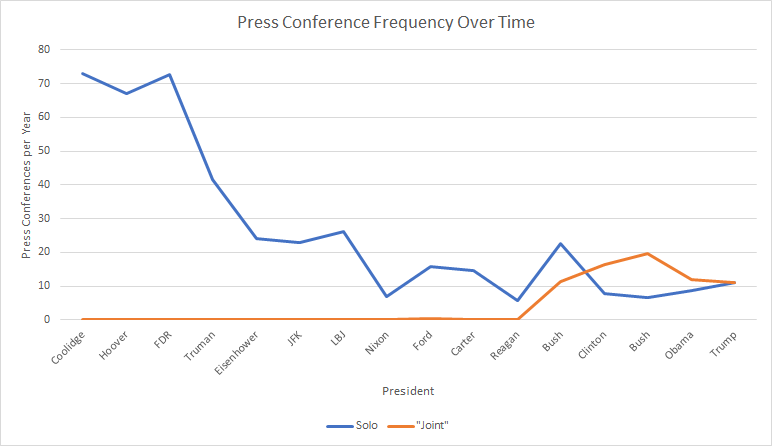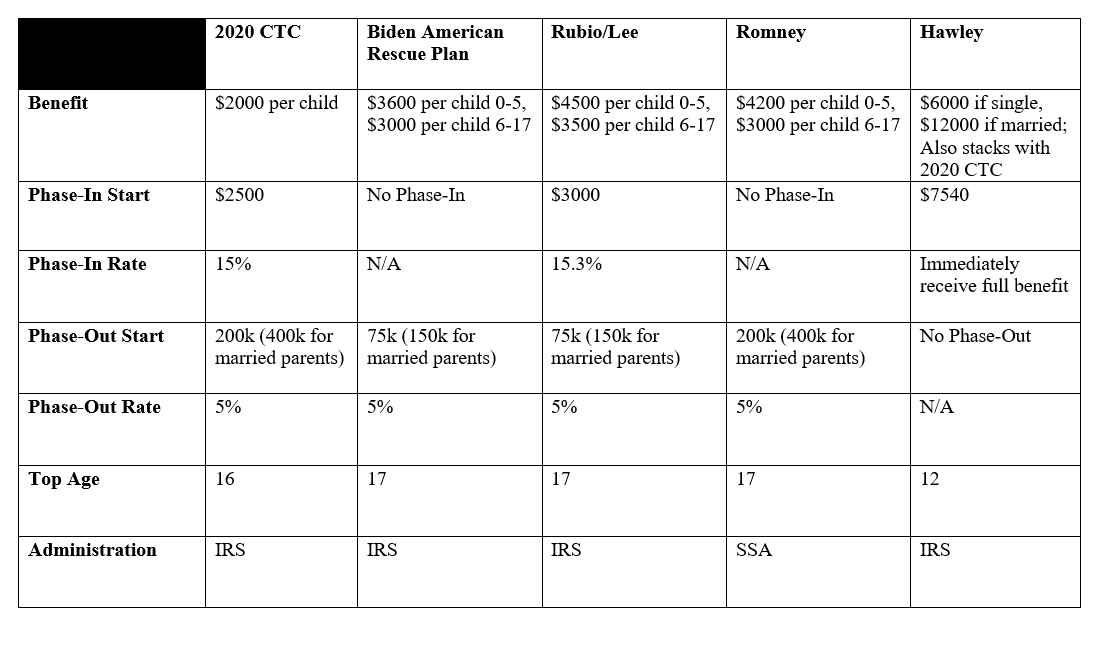Farewell from Marc the Intern (feat. Greatest Hits and Two Quick Takes)
Thank you!

Marc the Intern here!
Just popping in to say that Thursday was my last day as Slow Boring Intern.
I can confidently say that across many jobs and internships I’ve had in the past 6 years, this was by far the best. The last 7 months have been so much fun and though Matt is the CEO, you are the customers, and you make Slow Boring possible. Because of you, I got to spend 7 months avoiding online school (which is not fun), learning an extremely large amount about American politics, editing one of my favorite writers, and writing for a loyal but never uncritical subscriber base.
I’m not entirely sure what the future holds for me career-wise, but the appeal of a career writing, researching, or editing in intra-liberal politics was greatly advanced by this awesome experience.
In a couple weeks, I’ll go back to school and though college is challenging and time-consuming, I hope this isn’t the end of our relationship. At the very least, you’ll see me in the comments from time to time and maybe I’ll write some stuff for you going forward. Have a good summer, and thank you so much for your support. Continue to slowly bore!
I take you behind the scenes
If you haven’t already, you should read my four Slow Boring articles:
“Universal health insurance is a winning fight worth having”
“Stop marketing race-blind policies as racial equity initiatives”
“Building a better welfare state”
“It's time to take Andrew Yang's policy ideas seriously”
I really really enjoyed writing for you all, but at Slow Boring, my most time-intensive duty was research. I always thought this was one of the main perks of the job because — unlike a beat reporter or an economics correspondent or something — I got to learn about a new political topic every day. Behind the scenes at SB, we had a Slack channel for every article, where we would talk about things we learned doing research about the topic, and then I’d post edits there after Matt wrote up the article. After the article went up, I’d archive the Slack channel.
Just searching for archived Slack channels that start with A, I’ve done research on asymmetric polarization, the April jobs report, Afghanistan, “abolishing the suburbs,” AstraZeneca, and Amazon. That’s a pretty sweet gig, I think.
Behind the scenes is rarely as funny as the actual scenes
One common thing I would do during the course of my research is make a chart. Not every Slow Boring article features a Marc the Intern chart made in either STATA or Excel, but many do! Here are some favorites.
This particular chart comes with a funny story.
I made this chart for Slow Boring’s first “defund the police” article, which was also the first sorta-viral article that mentioned me by name. I think this is a good graph — with the naked eye, you can observe that the cities with high cop densities don’t have significantly more police killings on average. That implies two things: first, if we get rid of a bunch of cops, it’s not clear that’ll solve our police killing problem, and second, if we want to add more cops (to reduce crime and apprehend criminals), it’s not clear that’ll make our police killing problem worse. I was (and am) proud of it.
But many people did not like my chart. Matt tweeted out the chart as its own tweet, and then some people had mean responses. One professor said there was “literally a textbook error,” and then when I asked him what the error was, he turned his account on private for the day.
An Econ PhD student at a well-known department sent me an email (at my Dartmouth email address!) detailing all the ways in which the graph was not formatted to his liking (the numbers on the y-axis being vertically oriented, using the default theme, no commas to denote thousands). And best of all, on one of the Twitter pile-on threads, a Harvard PhD student made this absolutely excellent meme about the graph, which I promptly saved before he shortly thereafter deleted his tweet.
This was an unbelievably strange day. I took that day off because my girlfriend was visiting me in LA. It was bizarre explaining to her and to my other friends that this weird job I had just started at a subscription-based politics blog caused me to be the subject of Twitter beefs that culminate in graph-formatting roasts.
In all seriousness, I wasn’t offended much — by criticism on this issue or any other. I thought it was amusing, interesting, and kinda cool to be the subject of some Twitter conversation, and I think realizing that this stuff doesn’t affect me negatively was a good realization to have early because, if I do make this industry my career in a couple years, I can’t imagine that was the worst of it I’ll ever receive.
Four Other Charts!
Here are some other images I made that unfortunately aren’t the subject of any memes, but were included in Fast, Exciting Slow Boring posts (1, 2, 3). They’re also interesting, at least to me. I apologize for what is apparently widely believed to be terrible formatting skills.
Here’s one I made recently that didn’t go in a post. Bonus chart.
Doing What a Newsroom Does (Arguing over Slack)
As you may have heard thanks mostly to the Daily Beast, it’s become really common for journalists to argue over Slack and be really mean to each other. Matt and I are luckily nice to each other, but we do actually disagree sometimes. In the spirit of Saturday Takes, Quick but also Hot, here are some of the takes Matt disagrees with, and explanations of why I think the way I do on these issues.
Perhaps I’ll expand on these some day.
Cryptocurrency is good
Quick disclosure: I don’t have a big net worth or anything, but I have a little bit of savings from working various jobs including this one and growing up well-off — of these savings, some share between 25% and 50% of it is invested in crypto. I hope this doesn’t make you discount my analysis, and if anything, I think that’s just consistent with it.
I think my views on crypto could be collapsed into a general sort of lesson: liberals, progressives, and leftists should be more skeptical of state power over things. I don’t think crypto is a good inflation hedge even if some people use it like that — the coins fluctuate according to people’s opinions of them, like a stock, mostly having nothing to do with people’s inflation expectations. Crypto skeptics are right that the best use of crypto is evading government control over money, but I don’t think that’s so bad!
I first purchased crypto early in the pandemic, honestly, because I was really bored and I wanted to play online poker. That’s illegal in California, but if I sent my crypto to some gambling site, Newsom and the LAPD couldn’t really stop me. If you think I should’ve been prevented from doing that because gambling is really bad, I think you should just imagine there’s something you enjoy (or need) that requires sending money that is (or could become) illegal or very difficult.
Or you may recall that Trump would make a common refrain that Mexico would pay for our border wall. It was always obvious this would be impossible, but Republicans did go to the drawing board wanting to make this a sorta-reality. One of the things they came up with was a tax on remittances, money sent from people in America to their families in Mexico.
Do you think it’d be better if hard-working Mexican immigrants living in America could send some money back to their family without some percentage being lumped off the top for a dumb border wall? I do! If Mexico isn’t poor enough to engender your empathy, imagine we have some future right-populist leader who just makes it illegal to send money to Africa on the basis of those countries being “shitholes.” I want hardworking Nigerian immigrants to be able to get around that and send money to their families.
The fundamental thing about freedom is that some people will use it for stuff you don’t like. Giving people more freedom to send each other money seems fine (especially if, like me, you think more drugs should be legal along with prostitution). We could get rid of cash on the basis that criminals use it too, but I don’t think we should do this either. Some people use crypto for cybercrime, but I’d just fund the cybercrime police rather than eliminate people’s investments and ability to send each other money easily without government control.
I realize this brings up a common sort of paradox where I want strong enforcement of the rules I like and weak enforcement of the ones I don’t, but this is just how it is. Everybody has that view, and that’s ok. I think cops should really enforce our no-murder rule, and I’m down to give more money to them to help with that. I think they really shouldn’t enforce gambling/marijuana/prostitution laws, which I don’t think should exist anyway.
Environmental concerns are real, but I think the concern here gets the issue order backwards. Countries should make laws regarding carbon use (preferably a carbon tax). Then, people should feel free to innovate within the law. Getting mad when innovations happen because those innovations burn carbon is silly. Tons of things burn carbon! Make it pricier or illegal to burn a lot of carbon. Don’t just get mad when people burn carbon on innovations you personally don’t think are cool.
Big tech platforms should allow all legal speech
This is in a similar vein: in general, I think left-of-center people should reclaim the mantle of free speech, and specifically, I think they shouldn’t cheer on the virtual marginalization of anyone nonviolent, including their ideological opponents.
Though conservatives are the most notable complainers when it comes to tech companies kicking people off their platforms, Big Tech often does it to leftists too. Here’s an article from the World Socialist Web Site from last year where they note that when Reddit banned the Donald Trump supporters’ subreddit, they also banned the Chapo Trap House (a popular leftist podcast) fans’ subreddit. I think allowing massive companies to marginalize those with views they find repugnant also allows massive companies to marginalize those with views you might not find repugnant.
And I think we should all be able to imagine this. Imagine Matt was banned from Twitter, Facebook, Snapchat, Instagram, and Twitch, and Slow Boring’s articles were pushed down the list of Google search results (Google does this). Wouldn’t that be unfair and bad? You may say “Well those companies only ban virulent racists!” but racism is actually a very hard thing to agree upon. Some people think Matt is racist (I think that’s unlikely but I also don’t run Google) and I think it’s naïve to assume that the biggest companies on earth will always agree with you about what is and isn’t racism and hate. They’re going to make wrong decisions all the time. And some of these decisions will actually backfire and give the Censored even more attention. Hearken back to the New York Post piece about the Hunter Biden laptop that received far more attention precisely because Twitter and Facebook so heavily clamped down on its circulation.
There are a lot of solutions to tech censorship thrown around all the time, from breaking up tech companies to stripping Section 230 protections from companies who do targeted ads or have non-chronological feeds. Breaking up these companies into smaller companies, which is fine, won’t help with censorship since they’ll still be run by the same censorious types. I think targeted ads are good, and I think purely chronological feeds would make social media way less fun, which is a shame, since I do genuinely enjoy social media, especially Twitter.
I think the solution is to treat social media companies above a certain large user base as common carriers, like utility companies. Verizon is a totally neutral party when it comes to who uses its phone lines and it can’t legally cut off my phone service if I’m racist over the phone. I can imagine a world in which they could legally do that. And in that world, I imagine a great many liberals might defend it as having nothing to do with freedom of speech, but rather “freedom of reach” or people just “showing you the door.” I think they’d be wrong, and I think we ought to have some services that make our lives easier and more interesting (big social media, phone lines, airplanes maybe) that don’t get shut off if we are determined by some unelected group of San Francisco plutocrats to be capital-R Racist.
They can keep having engagement-based algorithms, but I don’t think they should throttle the algorithmic promotion of popular posts that express views they personally don’t like.
I’m just barely old enough to have spent some time on pre-speech-restrictions Reddit, and I don’t think it was that bad, even given how much vile, violent, or just disgusting content (text and images) was on it. Ultimately, I think the solution here is to just learn to try to avoid hateful stuff and if you see it, try not to let it affect you! I know that’s not satisfying, but if there’s a weird homophobe on a street corner with a sign that says “God Hates F***” or more relevantly to me personally, a weird anti-Semite with a sign that says “God Hates Jews,” I’m proud to live in a country where we don’t have armed men remove him and instead, we just try to have a fun day out and about in spite of it all.
If we did have a No Anti-Semitism in Public Spaces rule for example, I think it would have a significant negative impact on pro-Palestinian advocacy. Not because most of the people at a given Free Palestine rally are anti-Semitic (most aren’t), but because the government would just be very bad at distinguishing among them. And knowing the actual government we have, they’d probably all be arrested under such a rule, rather than the government perfectly selecting the anti-Semitic ones for sanctioning.
I don’t want The State or The San Francisco Plutocrats telling people what they can and can’t nonviolently say (violent speech is “Steve, go kill that guy,” not the n-word) in well-traveled public spaces. Both the state and the San Francisco plutocrats get it wrong too often, and it would probably backfire even when they get it right. Just let people say mean, offensive, vile stuff that doesn’t carry the threat of imminent physical violence. I think marginalization of speech won't just affect who you want it to, and the effects might not go in the direction you seek.
Anyway,
I hope I was a good intern to you all. You were certainly a good audience.
-Marc the Intern








Dear Marc,
After 33 years teaching English and writing, I think I can say with authority that you're a talented writer: snappy prose style, clear structure of argumentation, writing on subjects worth analyzing with passion and precision. I enjoyed your posts, and look forward to more fine work in the future. Keep us posted!
If you make your figures with Python or R, most people will be too insecure to criticize them.